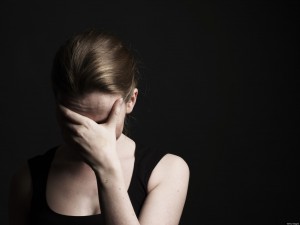Losing a loved one to suicide can mean a very different grieving process from other types of loss. When someone we love takes their own life, they often leave behind unanswered questions, anger, and/or a feeling of guilt that something could have been done to prevent it. It’s important to understand that the process is different for everyone, and that the range of emotions you may feel is perfectly normal.
One circumstance that can accompany suicide is substance abuse, which often complicates the grieving process for those loved ones left behind. When grief is coupled with feelings of guilt or shame because of the idea that there was something that could have been done to prevent a death, it can be overwhelming and may lead to depression or suicidal thoughts. It’s important to be patient with yourself and to come to terms with the fact that the motives for suicide are varied and often come from a place that may be outside of your understanding.
Some of the emotions that you may grapple with following the loss of a loved one to suicide are:
–Shock
–Anger
–Denial
–Guilt
Having such a complicated swirl of emotions can take a huge toll on your mental state and can lead to loss of sleep and strife within a family unit, particularly if guilt or anger leads to trying to lay blame for what happened on a person or event. Attempting to find answers or place reason into the situation is perfectly normal, but it’s a dangerous and often unhelpful path to go down. Understanding that some questions may never be answered is one step towards acceptance.
Following the suicide of a loved one who struggled with substance abuse, there can sometimes be a feeling of shame for family members or close friends due to the stigma associated with those issues. It may be helpful to seek out organizations that help banish that stigma and offer help, your story, or monetary donations. There are many sites that offer assistance to those battling addiction, including The Courage To Speak and A New Path, which can help with counseling and even offer parenting courses.
Of course, everyone grieves differently. It’s especially important not to set a self-imposed limit for your grief. No matter how helpful friends and family attempt to be when it comes to understanding, they may encourage you to go back to work right away or to throw yourself into a hobby to avoid thinking about your loss. While this may seem like a good idea, it can be detrimental to push those feelings away rather than facing them. This is not to say that creative pursuits, such as art, dance, or music, can’t help you cope. Keeping a journal can be an extremely helpful way to get your thoughts organized and exorcise some of the negative feelings you may have.
In dealing with all of those emotions, you may find yourself turning to substances such as alcohol to cope with the pain. Unfortunately, what may seem helpful to us in the moment can often lead to bigger problems, can have lasting negative effects on self-esteem, and can make depression and isolation worse, sometimes leading to suicidal behaviors. In fact, a recent study showed that suicide is 120 times more likely in adult alcoholics than in any other group. Even if you only consider yourself a “social drinker,” alcohol is likely to compound an already heady mixture of emotions.
Instead, it’s a good idea to seek an understanding friend, a counselor, or a psychiatrist to help you through the early stages of grief. If you’re uncomfortable with speaking one-on-one, there are online support groups and forums dedicated to helping those who need someone to talk to. It’s important during this time to keep an open mind and to tell yourself that it’s okay to receive
help. Talking out your feelings and attempting to overcome emotional barriers doesn’t make you weak or less-than. Learning how to cope–especially with a loss unlike any other you’ve ever experienced–isn’t a process that happens overnight, and no one comes equipped with the ability to do it alone.
by Adam Cook
Adam Cook has a strong understanding of the devastation that can be caused by addiction. He recently lost a close friend to an addiction-related suicide. In an effort to better educate himself and to help others, he created AddictionHub.org, a site that provides addiction and mental health resources.

